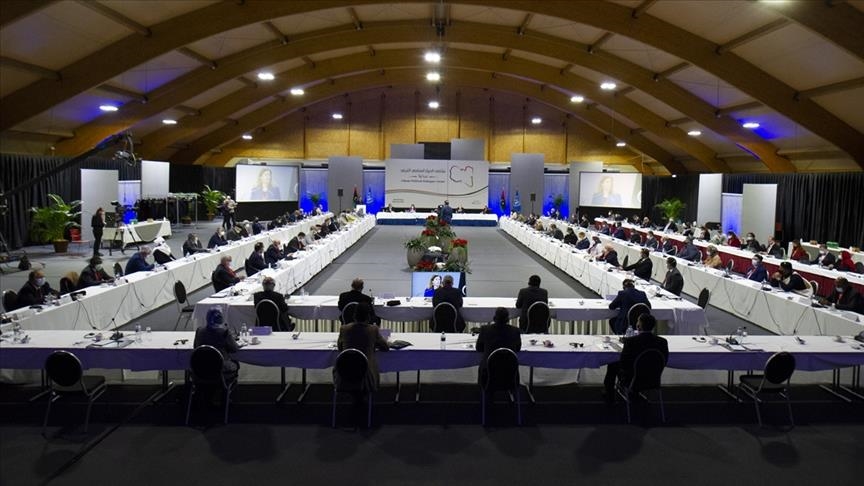
GENEVA
Mohammad Younes Menfi on Friday was elected the president of Libya’s interim government, and Abdul Hamid Mohammed Dbeibah the prime minister in the Presidency Council during voting in an unnamed location in Switzerland not far from Geneva.Acting UN special envoy for Libya Stephanie Williams told delegates that the challenges are not behind them.
“We’ll be watching those you have selected to make sure they truly go back to the Libyan people on Dec. 24 of this year, to democratically elect Libya’s representatives and political leadership,” Williams said.
"The prime minister-designate must within a period not to exceed 21 days form his Cabinet and present its work program, along with all the outcomes of the Libyan Political Dialogue Forum to the House of Representatives for full endorsement.”
The UN envoy said the new unified executive is stipulated to launch a comprehensive national reconciliation process "based on transitional justice principles and promoting the culture of amnesty and tolerance in parallel with truth-seeking and reparations."
She said the national reconciliation track is to be taken up by the African Union in the coming months.
The new executive must tackle Libya’s economic crisis and the country’s citizens’ dire living conditions, Williams added.
Since the oil blockade was lifted in September 2020, substantial progress has been achieved to enact the economic reforms needed to create a more equitable and durable economic arrangement for Libya’s oil revenues.
The voting took place under the Libyan Political Dialogue Forum to choose the three-person Presidency Council for the interim government during a five-day meeting spearheaded by the UN Support Mission in Libya.
Menfi’s ticket garnered 39 votes to the 34 of the second group in a second round of voting Friday with 30% of the elected positions going to women.
Interim Prime Minister Dbeibah founded the Libya al-Mostakbal movement, previously led the Libyan Investment and Development Company under ousted ruler Muammar Gaddafi.
“We have no future but to move forward,” said one delegate, while others praised the role of Williams over the recent months.
One delegate said the government must serve all of Libya’s regions.
The winning list included Menfi, Mossa Al-Koni, Abdullah Hussein Al-Lafi, and Dbeibah.
The selection mechanism stipulated that a list of candidates must receive 60% of the valid votes to succeed in the first round.
As none of the lists reached this threshold in the first round, a second-round was held to vote on the two lists which obtain the highest number of votes in the first round.
The threshold for the second round was 50% + 1 of the valid votes.
Libya has been torn by civil war since the ouster of Gaddafi in 2011.
Based in the capital Tripoli and currently led by Prime Minister Fayez al-Sarraj, the Government of National Accord was founded in 2015 under a UN-led agreement. But efforts for a long-term political settlement have failed due to a military offensive by militias loyal to Libyan warlord Khalifa Haftar.
Al-Sarraj’s internationally recognized government has been battling Haftar’s militias since April 2019 in a conflict that has claimed thousands of lives. Anadolu Agency website contains only a portion of the news stories offered to subscribers in the AA News Broadcasting System (HAS), and in summarized form. Please contact us for subscription options.








